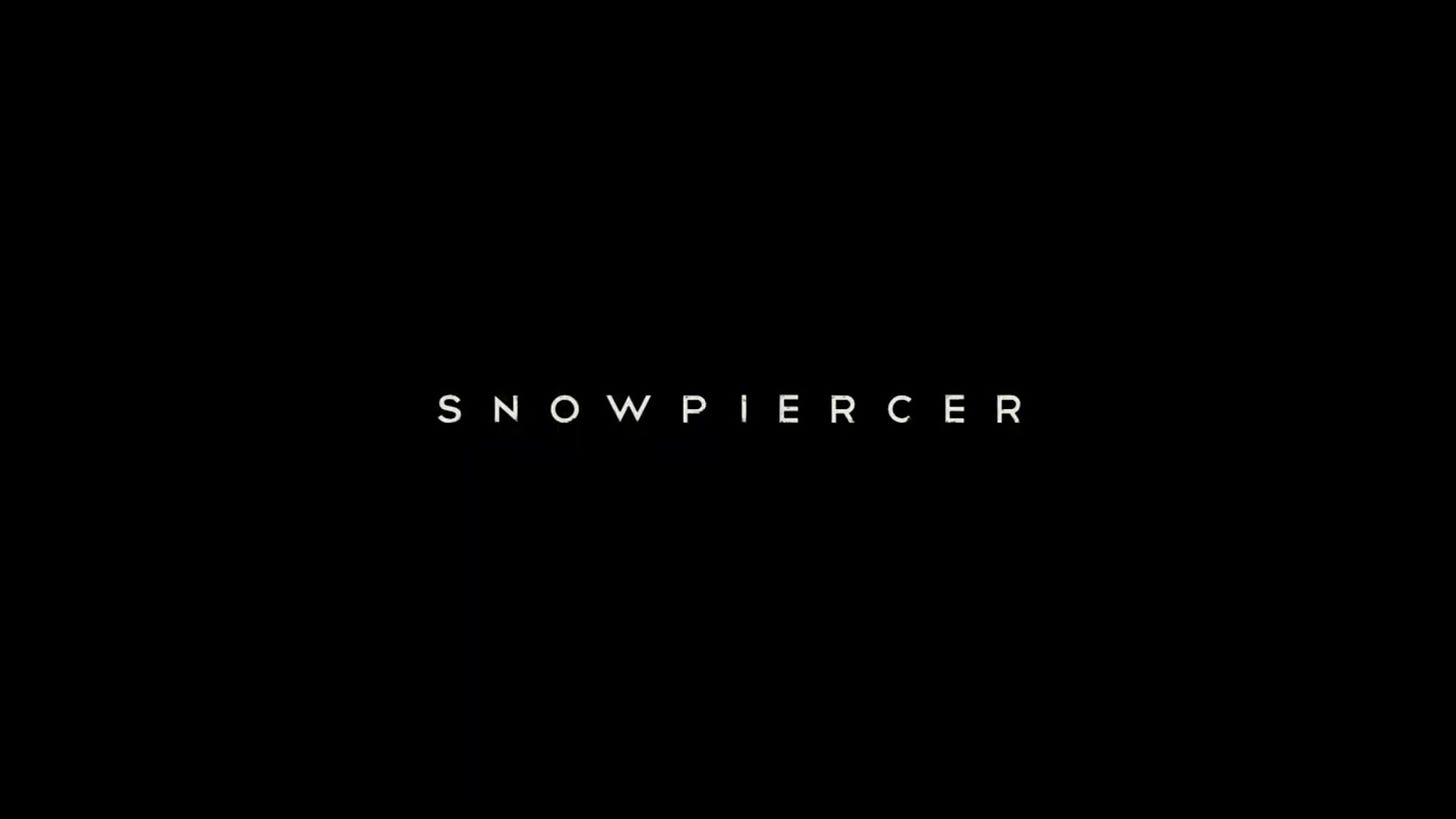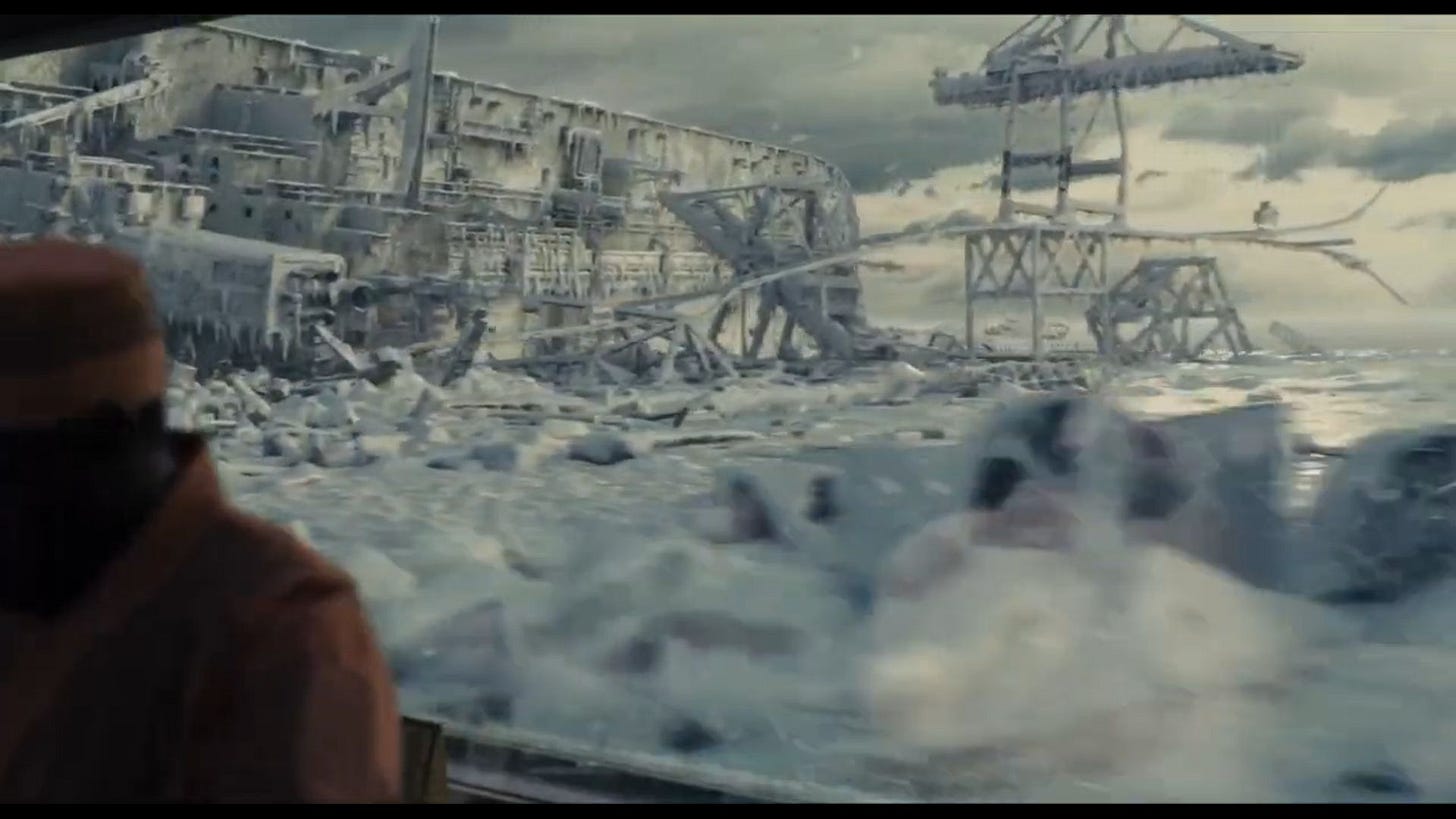PLOT
An attempt to stop climate change backfires, plunging the world into a new ice age. Those few who survive now live in a high-speed train with the wealthy enjoying the luxury of the head while the poor live in squalor at the tail. After years of enduring this, a revolt is brewing.
REACTION
NOTE: This reaction is spoiler-free.
I’ve been wanting to watch this for years and finally got around to it. And to be honest, I’m a bit torn about this one.
First, let’s address everything the film does right—and there’s quite a bit, to be fair.
I’ve always had a soft spot for post-apocalyptic films, especially those more focused on plot than violence. This falls squarely in that category, even if there is plenty of action as well, of course, and that’s fine so long as it’s not gratuitous. And it ain’t. The settings are great—I especially enjoyed the too few shots we see of the outside world. The train itself is well-designed and, in many ways, becomes a character in the story. There is depth here, there is substance and emotion. With obvious parallels to present times—like the rift between the rich and the poor, which is a central theme of the movie. Addiction is another major one
It’s not just the world that feels real. The characters also have depth, and even if we don’t know their stories right from the start, we can feel these people are real, they’re alive, they have history, pains, flaws, weaknesses... Later, when we learn Curtis’ backstory, we get a slap in the face and it all suddenly makes sense. Comments made throughout the film and innocent questions now become loaded with meaning and emotions.
The writing is brilliant, but so is the acting. The entire cast is right on point. Not once do you feel like it’s just a movie. They catch your attention and never let it go until the final scene. I’ll give extra brownie points to the two Korean leads—Song Kang-ho and Ko Asung—who play a frail but endearing father-and-daughter duo. But everyone is amazing here—from the big stars (John Hurt, Ed Harris, Chris Evans...) to the more obscure ones (Alison Pill, Vlad Ivanov, Luke Pasqualino...)
With all that, you might wonder why I’d be torn about this film. Well, there are a few reasons.
First, Curtis says he was 17 when he got on the train and it’s been 18 years since. He lives in the tail, which means no access to guns. Not only that, but at 17, it’s doubtful he’d have had much training with guns in his previous life. Sure, he might have gone to shooting ranges and stuff like that. But I had a hard time believing he could use weapons the way he did here. Felt more like he’d had military training, which didn’t make much sense. I suppose he could have had that at 17, in his previous life, maybe, I’m not familiar enough with how the American military works, but if this was the case I’d have expected some mention of this, at the very least. But the film says nothing about his life before the train.
Next is an even more minor point. The way the cars are set up didn’t make much sense to me. Like having to walk through a beauty salon to get to the next one. I mean, I get it, it’s a train, they have limited space. But they could at least have made halls on the side, like when they go through the first-class wagons. Give customers a bit of privacy, you know? Not as big an issue for restaurants and places like that, but there are cases where you’d want that privacy.
But here’s the big one. What bugged me the most was the ending. Without spoiling the film, I’ll just say that it felt too abrupt and failed (in my opinion) to give the viewer closure.
It’s still an amazing movie, and I’m glad I watched it, but I can’t call this a masterpiece.
One thing “Snowpiercer” succeeded in doing, however, is making me want to explore more of the director’s work. Looks like he is especially fond of fantasy and science-fiction (and black comedy!), so this should be a fun journey.
So what about you? Have you seen this movie? What did you think about it?
Which is your favorite post-apocalyptic film?
Let us know in the comments.
CREDITS
Directed by Bong Joon Ho.
Screenplay by Bong Joon Ho & Kelly Masterson, from a screen story by Bong Joon Ho, based on the French comic book "Le Transperceneige" by Jacques Lob, Benjamin Legrand & Jean-Marc Rochette.
Produced by Jeong Tae-sung, Steven Nam, Park Chan-wook & Lee Tae Hun.
Music by Marco Beltrami.
Cinematography by Hong Kyung Pyo.
Edited by Steve M. Choe & Changju Kim.
Starring Chris Evans as Curtis Everett, Song Kang Ho as Namgoong Minsoo, Tilda Swinton as Minister Mason, Jamie Bell as Edgar, Octavia Spencer as Tanya, Ewen Bremner as Andrew, Ko Asung as Namgoong Yona, Alison Pill as teacher, Vlad Ivanov as Franco the Elder, Luke Pasqualino as Grey, John Hurt as Gilliam, Ed Harris as Wilford, Clark Middleton as the painter, Stephen Park as Fuyu, Paul Lazar as Paul, Adnan Haskovic as Franco the Younger, Tómas Lemarquis as Egg-head, Emma Levie as Claude.
Produced by Moho Film / OPUS Pictures / CJ Entertainment / Wild Side / Le Pacte.
Distributed by Radius-TWC (a division of The Weinstein Company).
Released on June 27, 2014 (world premiered a year earlier, at Times Square, on July 29, 2013).
Running time: 126 minutes.
Countries of origin: USA / South Korea / France.
Genre: Science-Fiction.
—
Share your thoughts in the comments! I would love to hear them.
If you enjoyed this reaction, please feel free to forward it to your friends or to share it on social media.
And don’t forget to like by clicking the little heart below this post ;)
Thanks for reading Screen Views! Subscribe for free to receive new posts and support my work.
—
Text (c) 2024 by Alex S. Garcia.
Header image: screenshot of the film’s title card.
Film poster courtesy of IMDB.







Since from my perspective it's a fable not a hard sci-fi story, I feel there isn't really a requirement for it to obey the criteria of realism in either of the points you mention. The story is at one level no more realistic than Charlie and the Chocolate Factory, so these inconsistencies, at least to my mind, scarely register at all. I'm not saying your points are nit picking, I just feel they're not relevant to the type of story at least as I perceive it, more mythical than grounded.
Regarding the ending, in many ways it resembles the Ursula Le Guin story "The Ones Who Walk Away from Omelas" which is about a perfect utopia - which this isn't, by any means, but it at least functions as a society - which is built on the suffering of one child. A magical fable with no pretensions at reality.
https://en.wikipedia.org/wiki/The_Ones_Who_Walk_Away_from_Omelas
When the people of that world know that truth, some walk away and some are content to live in this secretly cruel society. That "walking away" ending is scarcely possible from a speeding train, so by default the ending here has to be what it is. Once the terms of the world are set up, only complete destruction of the train-world can suffice for a moral-fable outcome. So again, it works perfectly as political-social fable, not in any way as a realistic story.
Big fan of this one!